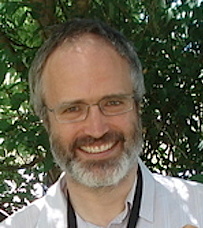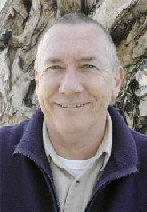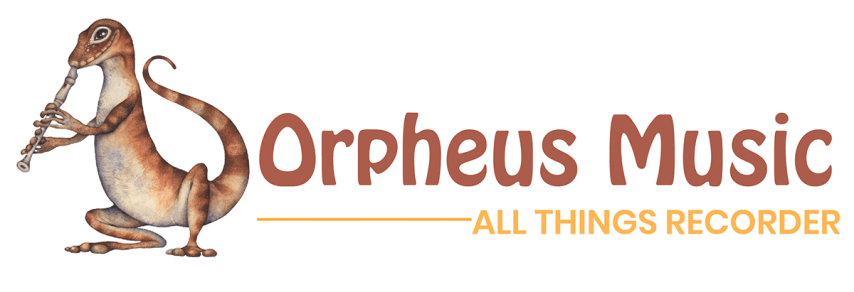
Interviews with Composers during Covid-19 in Australia
During 2020 we shared some interviews with some composers who are published with Orpheus Music. We asked them how lockdown had affected their creative output, and how have they been creating music during this time.
Interview with Ben Thorn

What is your creative process when composing a new piece?
This really depends upon the context.
Sometimes music is written for a very specific purpose, for instance to be used in a theatrical production, in which case there can be very tight parameters with regard to timing, mood, instrumentation, performers' skill levels, words etc. In a case like that I have to work within the limitations that are required - to some extent it is a problem solving process. I think about the sorts of sounds that will be appropriate, is it going to be primarily melodic or textural/timbral and then play with ideas and see if they can be developed within the limitations that the performance context will impose. Usually in cases like that I probably go for simple solutions since it is always possible that my first ideas don’t work for the people I am working with.
Composing a piece for a more vague performance context gives me more freedom. I start with an idea that can be developed and play with it. Sometimes I might work out a structure early on or sometimes that develops with the piece. I don’t necessarily know how long a piece will be when I start, and again there is a certain amount of problem solving as the material develops.
Probably the most important aspect of composition is being self critical. This is where notation programs are really useful, since they allow you to play back what you’ve written and think about it. This takes place both during the initial composition process and once a first draft has been completed. Sometimes I discover that my initial idea just doesn’t work - maybe a melody just isn’t interesting enough or seems to plod, and the playback lets me hear this. Sometimes non-working ideas can be adjusted - things can be improved by changing instruments or tempos as well as by tweaking the notes. Sometimes it is best to just throw the idea out and start again.
Once I have a first draft I usually play the file again, and again and again and again. If there is anything that doesn’t quite work it becomes really annoying with repetition, and then it becomes a question of editing and adjusting the score. This can involve changing notes, changing rhythms, changing textures, changing harmonies, changing the length of sections, getting sections to overlap, cutting bits out, putting in new bits. It would be very rare that I don’t change something, even in a very short piece. And this occurs after I have potentially adjusted all these things when creating the first draft. But my aim is to create a piece that is as good as it can be, which doesn’t mean that every composition ends up as a masterpiece. They should all be good, without any noticeable problems, but some pieces manage to have that indefinable magic that we all aim for, and no-one has yet discovered how to quantify that.
When did you start composing - and what or who were your early passions and influences?
I started composing seriously when I was about 13. I’m not sure why, but I just had an urge to write music and explore sounds. Initially I was composing melodies that were probably influenced by pieces that I was playing and I had a wonderful teacher at school, Grant Hellmers, who gave me feedback, encouraged me and introduced me to various compositional processes and ideas. I think one thing that was really important was that I was always open to different ideas and styles and so I experimented. I didn’t feel that I needed to limit myself to one style or approach.
Why do you love composing for the recorder?
I compose for the recorder because it is an instrument I know extremely well. It is also an instrument that I feel happy to write for in a wide range of styles and for a wide range of levels of complexity. I have written music that reflects early styles from the renaissance or baroque periods, folk styles and also avant garde approaches exploring extended instrumental techniques. The versatility is appealing. Quite a lot of the music I have written has been initially for my own use, either as performer or teacher or conductor, and this has included very simple pieces that explore the "funny” sounds that are often quite easy on the instrument. I really enjoy the look of excitement or wonder on kids' faces when I introduce them to new ways of playing the instrument.
How long does it take you on average to create a new composition?
This really depends on what the composition is, how long, how complex. I would say that I am a fairly fast composer and prefer to be able to work on something intensively over a short period of time rather than spreading it out. One consequence of this is that I do have periods where I am not actually working on any particular piece of music, though it is possible that ideas are bubbling around my subconscious.
What do you do when you hit a metaphorical "musical roadblock?" How do you get past it?
As I said above, sometimes an idea, even one that has superficially been well structured and logically developed, just doesn’t work and it is important to be able to throw it out. Then you have the problem of replacing it. Sometimes just leaving the problem alone for a while will work and new ideas will come. Another solution is to rework ideas from earlier pieces. I will quite often rewrite or rearrange existing pieces, particularly pieces I have written for theatrical performances which otherwise won’t easily get another outing. A song or short piece of incidental music can become the basis of a section of a larger piece, sometimes in the process becoming something quite different.
It is also useful to have a few tricks up your sleeve. One that I have used when trying to write a melody is to pretend that I am creating a song setting, starting with a poem to structure the melody. This is not actually writing a song since the words won’t ever be used and the resultant melody may be adjusted in ways that don’t necessarily match the words but it is a way of generating musical material that often is more rhythmically interesting than just trying to write a melody.
Another trick or stimulus is to start with a form or structure from the past, for instance a renaissance ground bass. This doesn’t necessarily have to lead to pastiche imitating the style (after all you can play a chromatic scale against a ground bass fairly easily), in fact deliberately trying not to can be fun. Starting with the harmonic progression can be a way of getting initial ideas working.
How has Covid-19 affected your compositional output and creativity?
I’ve been quite productive during CoViD19. I’ve had a fair amount of free time which has allowed me to compose a 15 minute orchestral piece, a couple of choral pieces that are designed to be performable via video conferencing (the trick is that precise co-ordination of parts is not needed) a couple of pieces for recorders, one of which involved revising a piece that for some reason I left unfinished a few years ago and completing it with an extra movement, and several other pieces including a couple for guitar duo EphenStephen.
If you'd like to find out more about Ben Thorn and the pieces he has composed for recorder click here.
Interview with Lance Eccles

When did you start composing - and what or who were your early passions and influences?
I don’t have any formal musical training, least of all in composition, but I’ve always felt that I’d like to compose music. My first steps towards this were when I was in my teens and I made my way through a book on sixteenth century counterpoint. So I learnt a lot about the rules that composers like Palestrina followed, but I remained puzzled about how harmony works.
Why do you love composing for the recorder?
I’d never heard of recorders until I was 18, when a friend who was at teachers’ college showed me the tenor recorder he had to learn as part of his course. I immediately bought one, and then discovered the Recorder Society of NSW (as it was then called) and started going to their monthly meeting. I met some other recorder players there and from time to time played together with them.
Then there was a gap of quite a few years in which my recorders were left in boxes unplayed. My only composing during this period was of hideous songs that I wrote for myself to sing while bashing out chords on the piano.
That lasted till I was in my 30s, when some of the people I’d previously played with decided to start playing together again, and they invited me to join them. It was then that I began to write and arrange for the group, but what I presented them with wasn’t always enthusiastically welcomed.
Later still I was asked to join the Reluctant Consort, a recorder group of which another friend was a member, and it was at that point that I began to write recorder music more seriously, and far from being discouraging, the Reluctant Consort was happy to include these pieces in their concerts. I stayed with them for twenty years, constantly writing recorder music for them.
Some of what I wrote was circulated in not particularly elegant editions, and somehow or other it came to the attention of Zana Clarke at Orpheus Music. She was happy to publish new pieces, and ever since then Orpheus has been a big stimulus to composing.
What is your creative process when composing a new piece?
When I write a piece I need to be thinking of something concrete. That’s why the titles I use are so often of animals or natural phenomena. Even though the title means something to me, since it allows me to get ideas, I can appreciate the fact that the player or listener may not always see the connection. But the main aim is to produce a piece of music that people may like to play or listen to.
Constructing a new piece is nearly always a problem. Once I have a theme and its accompanying voices, I have to figure out what to do with it. Well, I can try putting the tune onto a lower voice so that a different tune comes out on top. Or maybe I can add another theme straight away to contrast with the first tune. At some point I may take a phrase and develop it in some way, and occasionally this will take me into a remote key from which I have to try and get back to the original key in a way that doesn’t sound too forced.
Besides original pieces I’ve often made arrangements of folk songs or hymns. The result is most often a piece in ABA form: the tune, some sort of development using bits of the tune, and finally a repeat of the tune. But if need be, that can be spun out to produce something longer.
From time to time teachers of recorder to young people have asked me to write music to accompany the reading of a folk tale — usually by the Grimm Brothers. I’ve always liked doing this, and the result is usually about ten short pieces illustrating parts of the story. (And in these stories there is nearly always a wedding at the end.) Some of the tales I have written for are The Sleeping Beauty, Red Riding Hood, The Frog Prince, Puss in Boots, Rumpelstiltskin, and Snow White.
How did you feel about hearing so many of your compositions on the recent 25th Orpheus Music Celebration?
I was quite surprised when the 25th Orpheus Music Celebration announced a competition in which recorder performances of pieces published by Orpheus were voted on; suddenly I began to see quite a few of my own compositions on YouTube. I especially liked Consort 8’s performance of my Kyrie Eleison Gregorian Fantasy, and I was amazed to see Kathy Williams-Devries all on her own multi-tracking my arrangement for eight recorders of Johann Crüger’s hymn, Wie soll ich dich empfangen.
Although Consort 8 contains more than just recorders, they include a well-disciplined recorder quintet, which has uploaded a number of performances onto YouTube.
I also liked the performance by the German group Flauto Vivo of my Spectrum. Not only is the piece well played, but the video presentation looks very professional.
There are some other performances of my music on YouTube that I especially enjoy, for example, another of Kathy Williams-Devries’ multi-tracks: When Johnny Comes Marching Home. (Kathy has lots of multi-tracking videos.)
And there is an older multi-tracking video by a man going under the name Soundole, who plays not the recorder but an electronic instrument with a mysterious sound called the Akai EWI. In one video he plays Descent of Angels, which I wrote for the 50th anniversary of the Sydney Society of Recorder Players.
And lastly, I’d like to mention a YouTube video taken from a concert performed in Germany last year, in which a fairly large consort of mostly young recorder players, the Blockflötenensemble der Marienkirche Reutlingen, performs a very spirited version of The Horses, which is from my set called Feeding Time at the Zoo.
Lance Eccles, July 2020
Interview with Clive Lane

What is your creative process when composing a new piece?
My pieces start from melodic ideas - often quite fragmentary. I develop them in my head and write them down, then try them out on an instrument (guitar or piano), where they usually grow a bit. After that it’s a long process of running the ideas over and over in my head, joining and extending them until a form emerges and I decide what medium best suits them - vocal or instrumental, solo or ensemble. Once a complete piece emerges it will go through many many drafts until I am satisfied. Then, often the next day, I will no longer be satisfied and the piece gets further revised…
When did you start composing - and what or who were your early passions and influences?
Since I was a high school music teacher for many years, I did a lot of arranging for small student groups and for concert bands. Eventually this became more and more original works. It was too long ago to clearly remember early influences, but renaissance music was always a passion.
What inspires you most at the moment, and what are currently your main compositional challenges?
At the moment I am doing a film score for a short film, so I am listening to people like Ennio Morricone for his film scores and Nicholas Britell for his great scores for the TV series ’Succession’. The music has to sync with, and complement the action and dialogue, without being too obtrusive. An interesting challenge.
Why do you love composing for the recorder?
One of the great things about the recorder is that the music gets played! Recorder groups seem very willing to give new music a go.
How long does it take you on average to create a new composition?
I’m a very slow composer, as I like to (almost) endlessly revise...
What do you do when you hit a metaphorical “musical roadblock?” How do you get past it?
If I get stuck in a piece I generally put it aside for a while. This may sound a little crazy, but sometimes the musical solution comes to me in my sleep and I wake up with the answer.
What do you love the most about the recorder community?
They are amateurs in the best sense of the word: lovers of music.
How has Covid-19 affected your compositional output and creativity?
At first I was afflicted by a lack of energy and purpose, but now I think I have adjusted to the new normal and have set up a new routine. I’m now working on new compositions.
Please recommend two artists to our readers that you feel deserve their attention.
One composer who I can recommend strongly is Brian Kogler from the Central Coast. He is well-known for writing rounds, suitable for recorders or voices, but he is a recorder player and has written two pieces for recorder ensembles for the Sydney group Consort 8.






